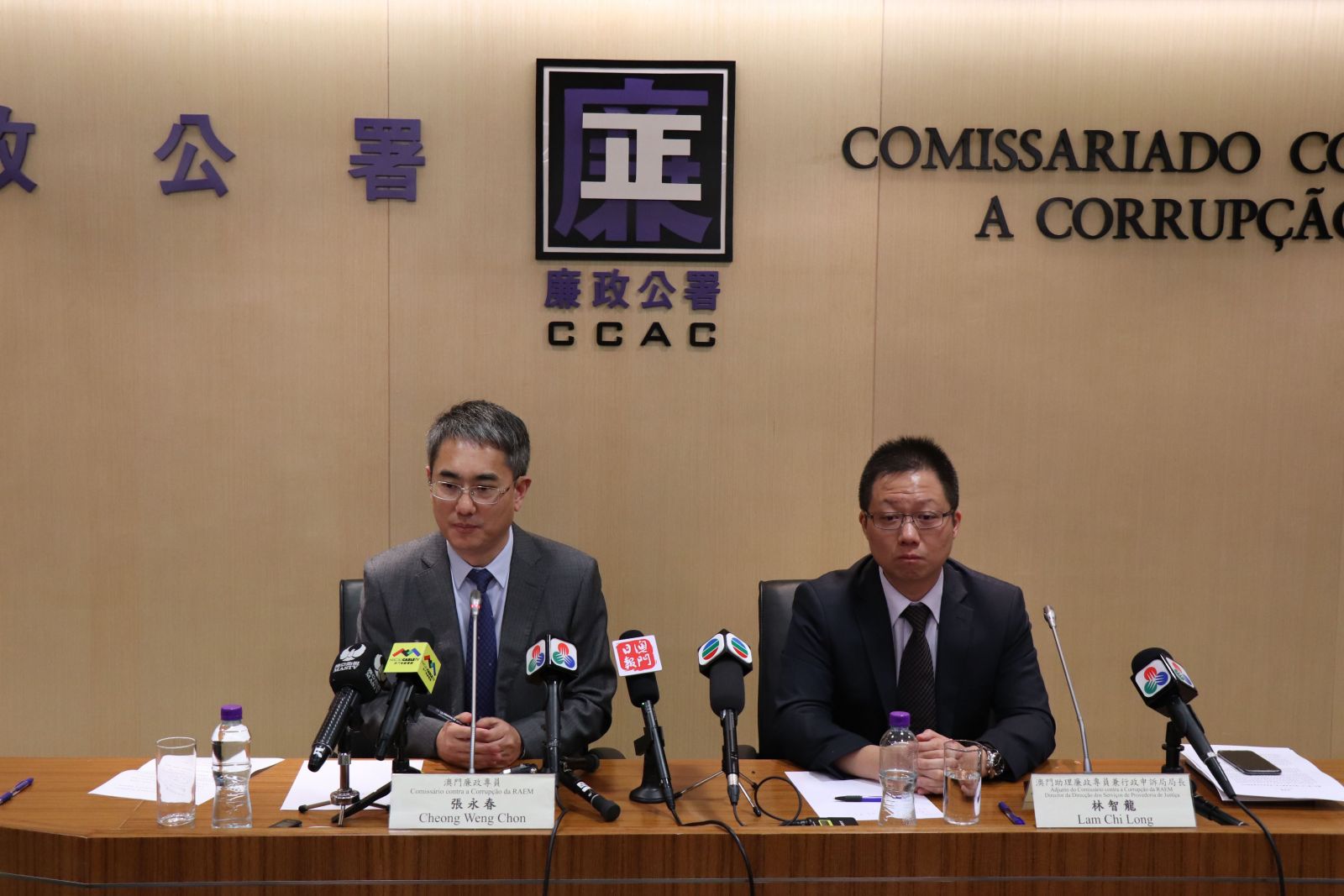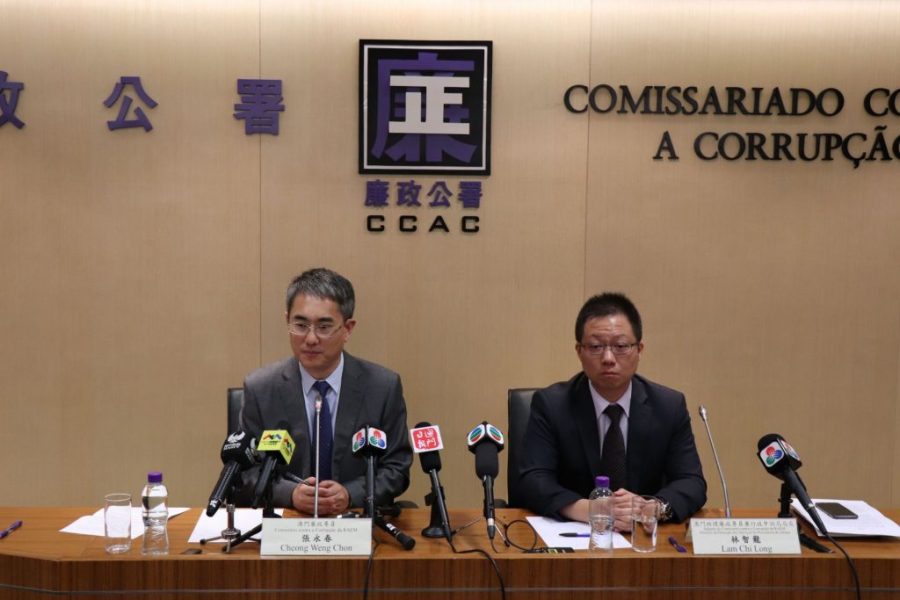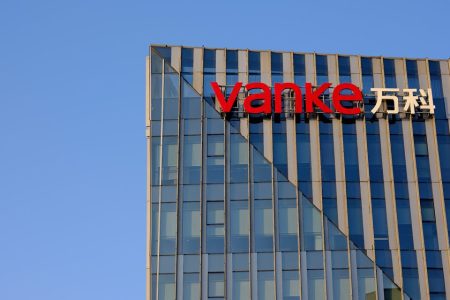Commissioner Against Corruption (CCAC) Andre Cheong Weng Chon said Wednesday that the developer of a -currently suspended- highrise residential building project on a plot at the bottom of Coloane Hill is possibly a victim of a fraud case surrounding the plot that was revealed by the CCAC earlier this week.
The plot, on the western part of Coloane, is near Lai Chi Vun Village.
The CCAC held a press conference yesterday to answer questions by the media about its hard-hitting report released on Tuesday about the findings of an investigation into possible illegalities committed during the assessment and approval procedures for the construction project on the plot.
The CACC says in the report released on Tuesday that it has discovered a raft of possible administrative illegalities, fraud and other possible crimes concerning the inheritance of the ownership of the plot at the bottom of Coloane Hill which was previously planned for the building project.
The report says that the CCAC does not rule out the possibility that some people illegally obtained the ownership of the plot after fraudulently claiming to be descendants of the initial owner of the plot through judicial procedures.
CCAC investigators discovered, according to the report, that the “inherited” plot is actually not located at the bottom of Coloane Hill but in the centre of Coloane Village. The one in Coloane Village is much smaller than the one on Coloane Hill.
The report suspects two government entities of irregularities concerning the plot – the Lands, Public Works and Transport Bureau (DSSOPT) and the Mapping and Land Registry Bureau (DSCC).
A plan for the plot issued by the DSSOPT in 2011 allowed building projects of up to 100 metres on the plot. The construction of a high-rise residential complex on the plot started in 2013 but soon afterwards was suspended, following complaints by heritage activists and civic leaders.
The activists at that time initially complained about the possible destruction of a Portuguese army pillbox if the project went ahead.
The developer of the high-rise project is Win Loyal Limited, according to the report.
The CCAC discovered that the plan issued by the DSSOPT for the plot was not in line with the planning terms laid down in its administrative instruction for the development of plots in Coloane, according to the report.
According to the report, the DSSOPT administrative instruction, which has been in force since 2009, states that the height limit for buildings on the plot is only 8.9 metres. The plan for the plot issued by the DSSOPT in 2011 obviously contradicted the administrative instruction, the report says.
According to the report, the CCAC also discovered that the plot on which the project was previously planned is actually government property. The report urges the government to repossess the plot through appropriate procedures.
According to the report, the people who are suspected of having illegally obtained the ownership of the plot – two men then living in Coloane – died in 1995 and 1999 respectively. The two men sold the plot to Chong Fai Properties Invest
ment Company Limited for 150 million patacas in October 1993.
According to the report, Win Loyal Limited bought the plot from Chong Fai Limited for HK$88 million in 2004.
During the press conference, Cheong noted that the suspected fraud and other illegalities surrounding the plot occurred in the 1990s.
The Macau Special Administrative Region (MSAR) was set up in December 1999.
He said that Win Loyal Limited, which was founded in 2004, bought the plot at the bottom of Coloane Hill because it wanted to develop a residential project there.
According to The Macau Post Daily, Cheong noted that CCAC investigators have not unearthed any evidence that would suggest that Win Loyal Limited has been involved in any illegalities concerning the plot. He said that the developer was, to some extent, a victim in the suspected fraud case.
Cheong noted that CCAC officials only questioned representatives of Win Loyal Limited in the run-up to the conclusion of the investigation.
Cheong also said that the CCAC would not rule out the possibility that some public servants committed acts of maladministration when handling the case.
Chief Executive Fernando Chui Sai On responded to the CCAC report by passing it on the Public Prosecution Office (MP) for further investigation.
Unlike public prosecutors, CCAC investigators do not have the power to charge suspects.






